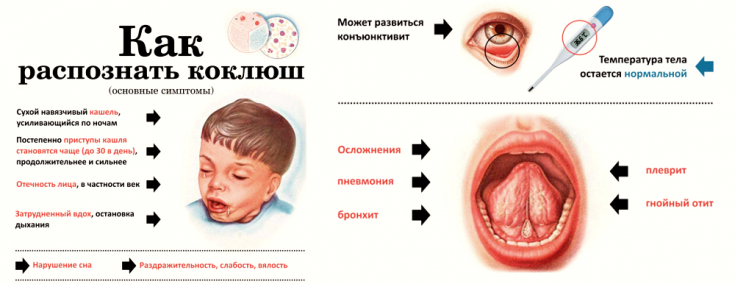All parents know: at a younger preschool age, upper respiratory tract diseases in children — natural phenomenon. And pediatricians even claim that in this way the baby's immune system adapts to infectious threats of the surrounding world and learns to deal with experience with ARI and ARVI.
And every mother is armed with drugs for high fever, cough, sore throat and other proven remedies to start treatment at the first same signs of illness.
But a nighttime cough in a child without fever is puzzling: what should be treated and with how to deal?
- Night cough in a child without fever: the most common causes
- Night cough: what to do and how to treat
Night cough in a child without fever: the most common causes
This symptom may indicate both quite "innocent" circumstances, and to severe illnesses. According to the prevalence of the causes of night cough in children, it can be distributed as follows.
Dry air
In most cases, coughing at night develops due to the drying of the nasal mucosa. When inhaling too dry and / or overheated air, the child develops irritation of the mucous membrane, which swells and disrupts the quality of breathing through the nose. The child, experiencing discomfort, is forced to breathe through the mouth. But the mucous throat is not intended for such loads, is unable to qualitatively humidify the inhaled air and also dries up quickly. As a result, there is a sore throat and coughing fits.

Read also: Optimal humidity for a child in an apartment: why is it important for health
Foreign body
Natural curiosity and the desire to know the world around us often pushes kids to the most reckless actions. For example, insert a piece of biscuit, a bead or a bone from berries into nose. If the idea was "successful" and the foreign body was pushed deep enough — parents won't even notice the incident. Until nocturnal cough occurs due to obstruction of the airways and breathing through the mouth. Usually in in this case, from the nostrils begin to discharge, and when you try to squeeze the child's wings of the nose, you can feel a foreign body or note the reaction of the child, which indicates pain.
Also, a foreign body may get stuck in the throat, but in this case, the cough will most likely be observed during the daytime.
Read also: Foreign body in child's body: first aid
Chronic diseases
Diseases of the nasopharynx, paranasal sinuses, larynx and throat are quickly detected in an acute course, since a high body temperature indicates a problem with constant accuracy. But if the treatment was not carried out or was carried out incorrectly, the disease transforms into a chronic and feverless course. But the pathological process continues, and at night, when the child is in a horizontal position, mucus from the maxillary sinuses or the nasal cavity — it irritates the throat and stimulates the cough reflex.

Allergy
Night cough with respiratory allergies develops in the same way as described above. During the daytime, when the child is busy, the presence of nasal discharge may be imperceptible — he swallows the mucus himself without noticing it. But during during during sleep, mucus continues to be secreted and irritates the throat throat, causing a cough.
Also, allergies can be caused by something that is only in the child's room (soft toys and an abundance of dust in them, a flowering plant or something else). Accordingly, it is in the nursery that the child's manifestations of allergies and night cough increase.
Read also: What to do if the child is allergic: advice to parents
Night cough: what to do and how to treat
First of all, if a child has a cough at night and lack of temperature, you should consult a doctor. Before choosing a method and means of treatment, it is important to exclude severe diseases of the respiratory system, heart and nervous system, which are also manifested by night cough and which require a separate direction of therapy.
Therefore, in all cases, treatment should only be prescribed by a doctor.
And parents will need the following information:
-
If you suspect a foreign body in the nose or throat, never try to remove it yourself. One wrong move, and the bead, which is relatively safe in the nasal cavity, can move deeper and cause acute respiratory distress. If the child is small, do not ask him to blow his nose — he may not understand your request, and instead of a sharp exhalation, take a sharp breath, which will cause the foreign body to move deeper.
-
Regardless of the child's well-being, always maintain the correct humidity level in their room and regularly (at least 2 times times day )arrange cross-ventilation.
-
Remove heavy carpets, curtains and upholstered furniture — — all pieces of furniture should be easy to clean with a damp cloth, not require care with the help of household chemicals and not absorb dust.
The above recommendations do not negate the need to see a doctor. Remember that the earlier the cause of the night cough is identified, the easier and faster the treatment will be, and the likelihood of complications will be completely excluded.
Read also: Bruxism in children: why a child grinds his teeth in his sleep and what to do about it
You may be interested in: Stone massage or stone massage - what is it? Watch the video.






Add a comment